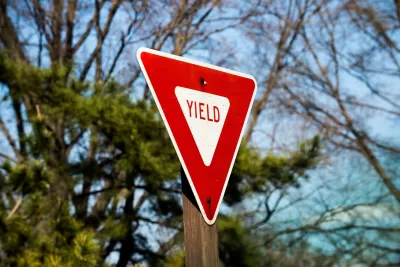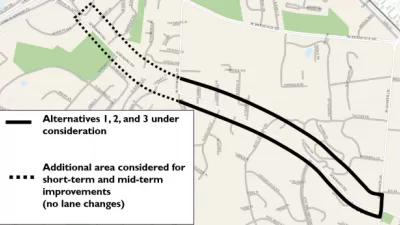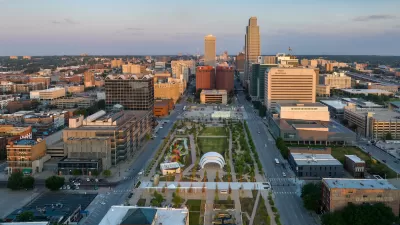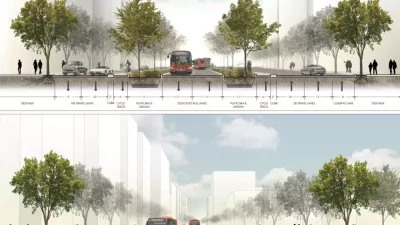For a second time, Charles Marohn is facing a challenge from the engineering profession over his work as the founder of the popular advocacy organization Strong Towns. This time, Marohn and Strong Towns are pushing back.

Strong Towns has published a new article been documenting an ongoing legal and licensing conflict that has emerged in response to the criticisms of the transportation engineering field as a core message of the advocacy of the organization. Here's how the article summarizes the two complaints so far that have been filed against Strong Towns and its founder, Charles Marohn.
The first Board of Licensure complaint filed against Marohn came in 2015. That complaint, made by an engineer affiliated with the transportation advocacy group MoveMN and the American Society of Civil Engineers, alleged that Marohn’s writing and speaking reflected negatively on the actions of some engineers and thus violated Minnesota Rules 1805.0200, which states:
“A licensee shall avoid any act which may diminish public confidence in the profession….”
On this first complaint, the Board of Licensure found that there was “no violation,” but notified Marohn that the “complaint will be held in the Board’s archives and is available should additional evidence warrant that the file be reopened.”
The second complaint was filed on March 5, 2020 by an engineer from South Dakota, a state where Marohn has spoken numerous times on the need for reform and where there is an active Strong Towns group in Sioux Falls. The complaint was submitted in retaliation for Marohn’s advocacy, going on to cite numerous examples of Marohn’s speech as the impetus for the complaint.
Marohn has documented the most recent complaint with articles published in August 2020 and November 2020, but the most recent article announces that Strong Towns is pushing back by filing "a complaint in federal district court against the Minnesota Board of Architecture, Engineering, Land Surveying, Landscape Architecture, Geoscience, and Interior Design (commonly called the Board of Licensure) and the individual members of the Board that are participating in this action."
The recent article also includes a discussion of the implications for the Strong Towns organization—including its many members around the country—by strongly restating its commitment to reforms.

Montreal Mall to Become 6,000 Housing Units
Place Versailles will be transformed into a mixed-use complex over the next 25 years.

Planetizen Federal Action Tracker
A weekly monitor of how Trump’s orders and actions are impacting planners and planning in America.

DARTSpace Platform Streamlines Dallas TOD Application Process
The Dallas transit agency hopes a shorter permitting timeline will boost transit-oriented development around rail stations.

Study: 4% of Truckers Lack a Valid Commercial License
Over 56% of inspected trucks had other violations.

Chicago Judge Orders Thousands of Accessible Ped Signals
Only 3% of the city's crossing signals are currently accessible to blind pedestrians.

Philadelphia Swaps Car Lanes for Bikeways in Unanimous Vote
The project will transform one of the handful of streets responsible for 80% of the city’s major crashes.
Urban Design for Planners 1: Software Tools
This six-course series explores essential urban design concepts using open source software and equips planners with the tools they need to participate fully in the urban design process.
Planning for Universal Design
Learn the tools for implementing Universal Design in planning regulations.
City of Mt Shasta
City of Camden Redevelopment Agency
City of Astoria
Transportation Research & Education Center (TREC) at Portland State University
US High Speed Rail Association
City of Camden Redevelopment Agency
Municipality of Princeton (NJ)





























